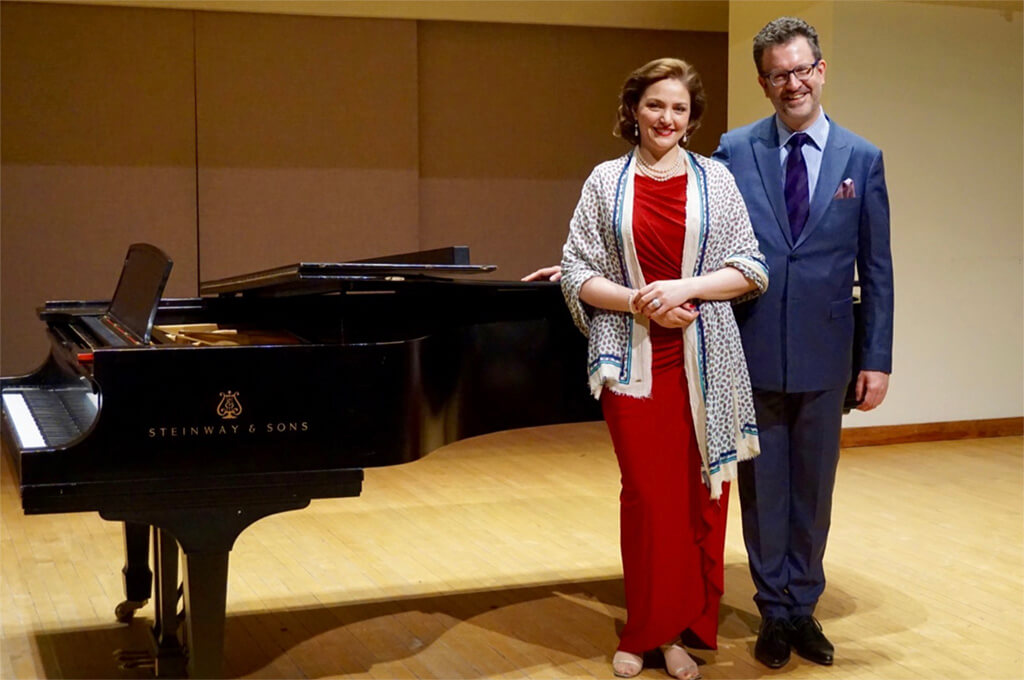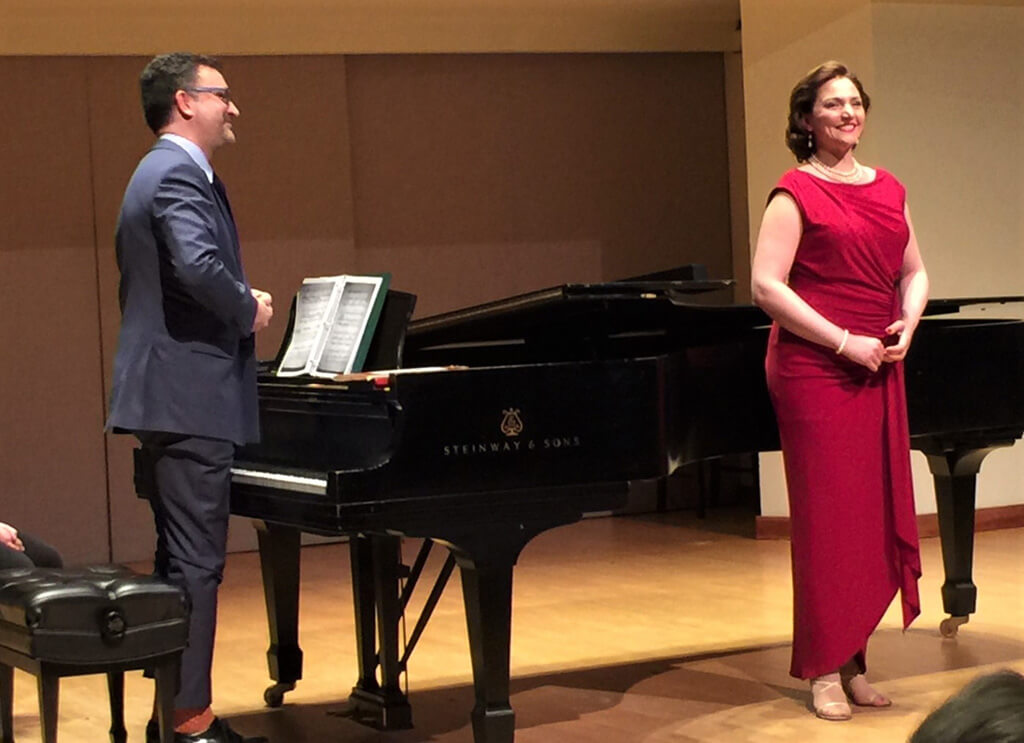
For Toronto voice fans, a not-to-be-missed annual highlight is the song recital presented by the Women’s Musical Club of Toronto, featuring rising young singers and established artists. Just in the last dozen years, we’ve had the pleasure of hearing wonderful singers the likes of Adrianne Pieczonka, Karina Gauvin, Russell Braun, Gerald Finley, and more recently Christianne Stotijn and Issachach Savage. This time it is Spanish soprano Sylvia Schwartz, who gave an auspicious Toronto debut this afternoon at Walter Hall.
I’ve had the pleasure of hearing Schwartz a few times in Europe, as Sophie in Werther and in recital. She possesses a lovely, pure, focused light lyric soprano, used with discerning taste, not to mention a surfeit of musicality and communicative power. All these qualities were on full display this afternoon, in a program of Alban Berg, Hugo Wolf, Jesus Guridi, Eduard Toldra, and Joaquin Turina. Walter Hall was full, despite the threat of freezing rain, underscoring the fierce loyalty of the WMCT audience. In attendance were many high school students, as well as 23 New Canadians — they were there thanks to generous donor programs.
There was a change in the program — twelve songs from Hugo Wolf’s Italienisches Liederbuch replaced the originally announced Frauenliebe und Leben of Schumann. For the Berlin-based soprano who has made her career in both Spain and Germany/Austria, the German-Spanish program ideally combines her two strengths. While I can’t comment on her Spanish, her German diction was perfect. Incidentally, she spoke to the audience later in the recital, in perfect British-accented English!
She opened with Berg’s Sieben frühe Lieder, a favourite cycle of mine. It’s early Alban Berg, with expanded tonalities to be sure but still grounded in the Late Romantic tradition. Given her modest-sized instrument, Walter Hall was ideal. My seat was in the fifth row a bit left of centre, but I heard every nuance and saw every expression. Interpretively she was terrific, with great attention to textual nuance, the changes of moods handled beautifully. Also impressive was the technical control of her instrument, with the most exquisite pianissimos one is likely to hear today.
If I were to nitpick, I do find the overall tempi of Berg cycle to be too slow, especially in “Nacht,” “Schilflied,” “Traumgekrönt,” and “Liebesode.” While the pianist and soprano captured the dream-like quality of these songs well, it had a rather tentative feel, not helped by the almost metronomic pacing. The faster songs, such as the gorgeous “Die Nachtigall,” went better, although it too could use more propulsiveness.

By the Hugo Wolf songs, however, both soprano and the excellent pianist Olivier Godin hit their stride, and the tentativeness disappeared. Schwartz is known for her superlative dramatic acuity, and it showed in the Wolf. She acted out a few of the funny songs, full of good humour but never overdone, with vivid facial expressions and subtle gestures, starting with “Mein Liebster ist so klein” and continuing onto “Nein, junger Herr.” Through it all, Godin was rock solid in support, and he took full advantage of the little bit of virtuosic display allowed by Wolf in the last song “Ich hab in Penna einen Liebsten.”
The second half was made up of all Spanish songs. It began with six Castilian folksongs by Jesùs Guridi, followed by a group of Catalan songs by Eduard Toldra, and ended with three by the Seville composer Joaquin Turina. These are such lovely, lyrical and utterly beguiling creations, so full of charm that one can almost feel the warm Mediterranean sun in its many melodic twists and turns. As expected, Schwartz was at her most comfortable and idiomatic in these songs. While her German Lieder were impressive, it was here that she shone the brightest, at her most natural and spontaneous.
By then, the audience was totally charmed. Her command of the text was extremely impressive — and we’re talking about a ton of words here! There was no a moment of hesitation. The full house, including a large group of high school students and 23 New Canadians, gave her very warm ovations at the end. But as is typical sometimes with Canadian audiences, the applause, while vociferous, stopped too soon, and as a result, there was no encore. (When I go to Liederabend in Germany, the applause can easily go on for fifteen minutes or longer.) But what Schwartz did sing was very satisfying. Let’s hope she will be back.



